EDUC 23329: Responsive Caregiving and Mental Health Report
VerifiedAdded on 2022/08/15
|5
|975
|16
Report
AI Summary
This report delves into the critical role of responsive caregiving in early childhood education, focusing on the prevention of mental health issues in infants and toddlers. It provides a reflection on a microteaching session where the student presented on the topic, discussing the causes of mental health problems, including genetic and environmental factors like abuse and neglect. The report highlights the importance of early childhood educators in identifying and addressing psychological issues, emphasizing strategies such as promoting open communication about emotions, encouraging social interaction, and fostering positive mental health in schools. The author also discusses the practical implications of the assignment, including how it helped educators understand the impact of psychological issues and develop effective strategies for supporting children, such as effective curriculum planning and parent-teacher meetings. The student also reflects on feedback received from peers, and identifies areas for further learning, such as various prevention and eradication methods used by educators worldwide.
1 out of 5
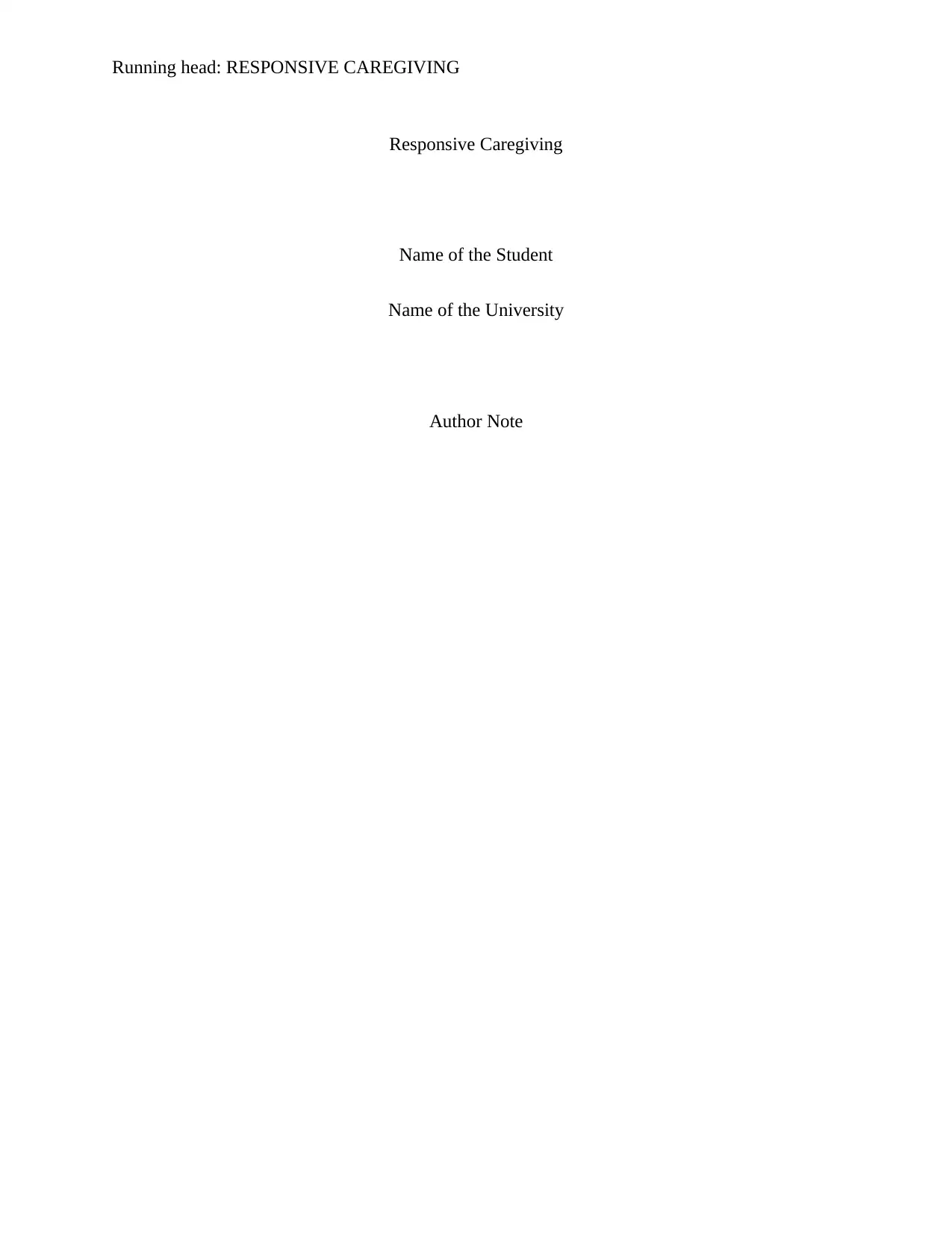
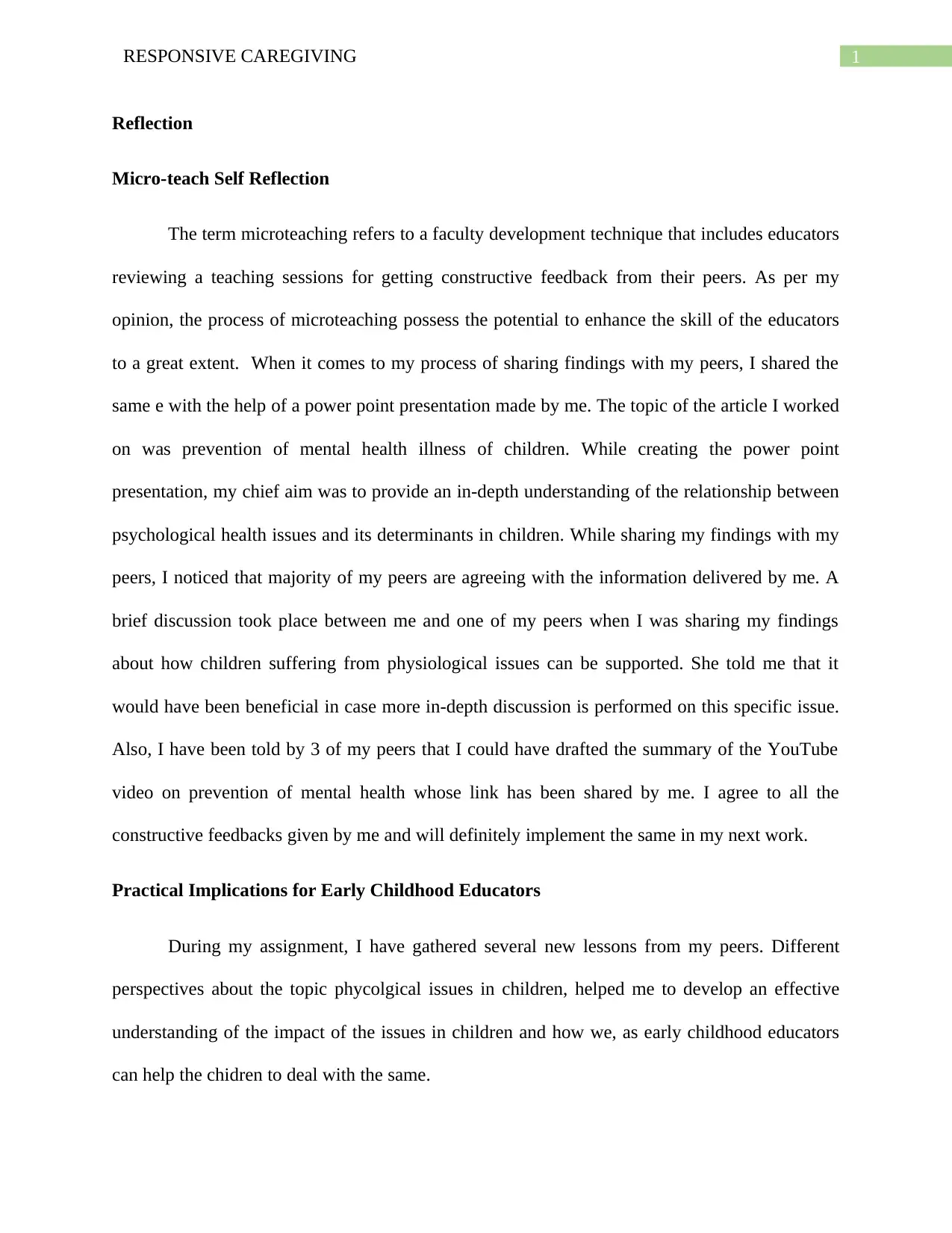
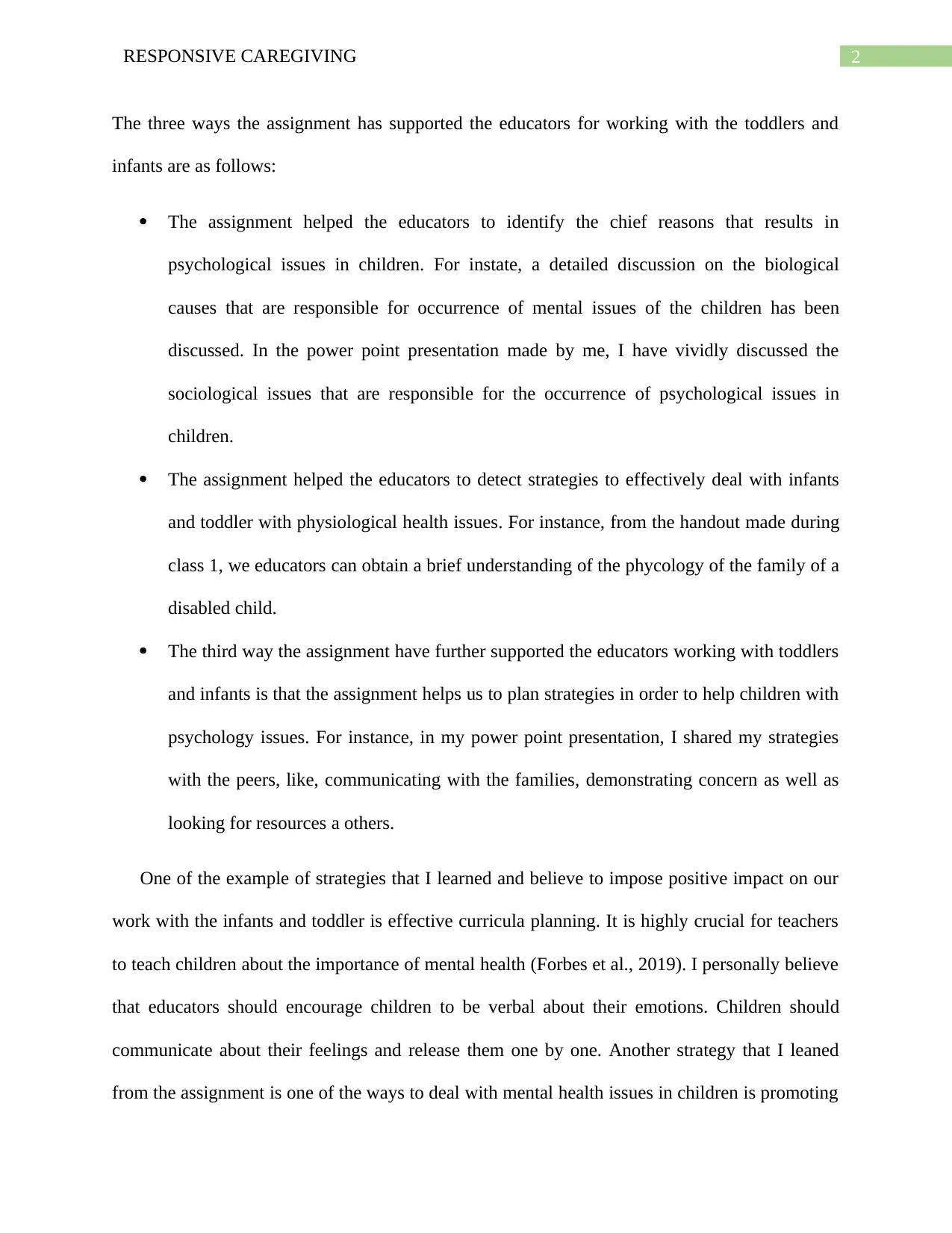

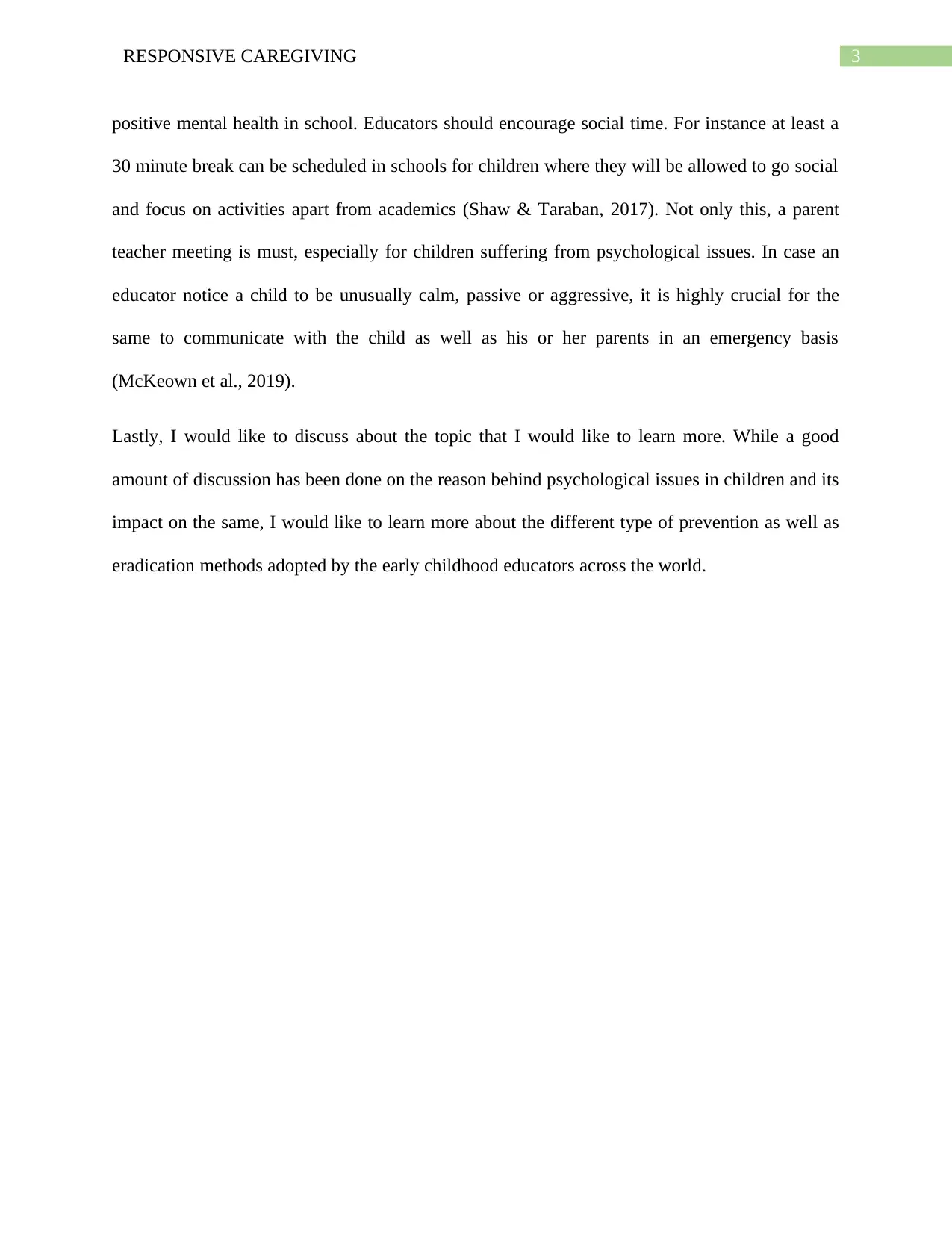
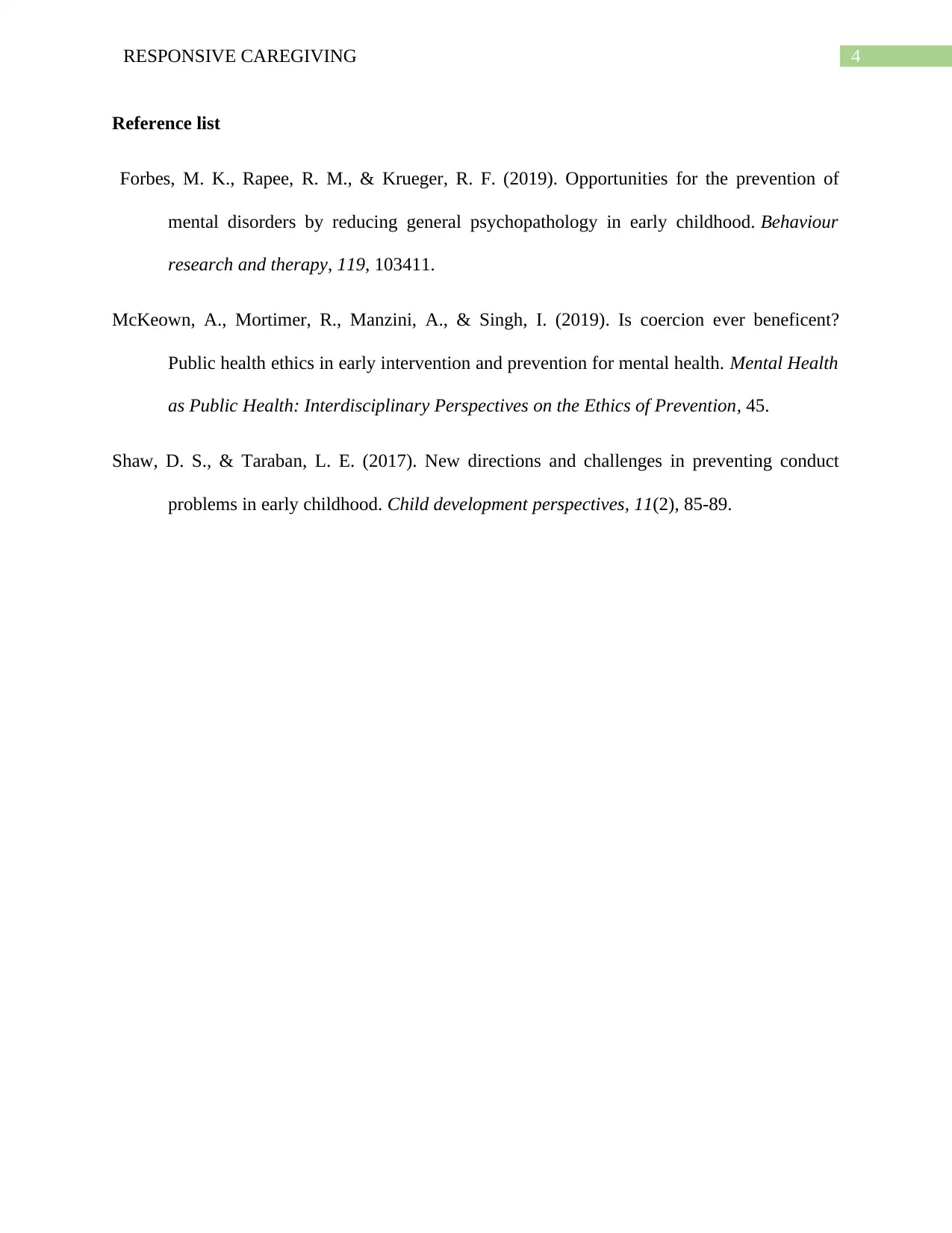






![[object Object]](/_next/static/media/star-bottom.7253800d.svg)